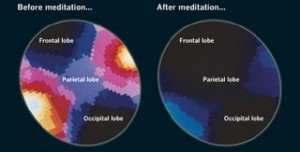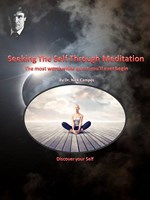 Would you make the right ethical, moral, and legal decision even if it meant struggle and pain for you, or would you take the easier, more lucrative path even if it had the potential to land you in jail? You might be faced with making that decision one day, and what you decide will determine your trajectory in life. But how does one make the right decision? What makes it right? Let us investigate. But first, a story:
Would you make the right ethical, moral, and legal decision even if it meant struggle and pain for you, or would you take the easier, more lucrative path even if it had the potential to land you in jail? You might be faced with making that decision one day, and what you decide will determine your trajectory in life. But how does one make the right decision? What makes it right? Let us investigate. But first, a story:
In chiropractic college, I was active in government, clubs, academic achievement, and adjustive technique. I was the student athletic director for my first several years in college, president of a philosophical club, and one of four chosen to adjust homeless drug addicts recovering at the Los Angeles Mission in Skid Row in downtown L.A. I also applied for a research scholarship offered to one student and teacher team that would investigate and publish their findings on chiropractic health care. The scholarship had a sizeable stipend attached to carry out the study.
I lost out on the scholarship to a team headed up by one of my classmates, an interesting situation, as we were the only two applicants. I was sure I would be given the nod, since my colleague had a questionable academic and attendance record. Not that the scholarship committee or even the school itself would know, but I, as a former partier, knew that my colleague also came to school red-eyed and stoned every single day, if he came at all. There was no way I wouldn’t be chosen.
An interesting thing, though, about chiropractic college is that there are state requirements for attendance in California. While some teachers were stringent, others could not have cared less if we showed up or not. Every student at my school knew which teachers took roll and which ones didn’t. There were some semesters when I barely saw my colleague at all.
 You might wonder how he passed his classes, but I will let you in on an old adage that was heard regularly throughout the halls of our institution: “C is for chiropractic!” All you had to do was pass. And cheating, which I hate to admit, was rampant at our school. Many people passed their classes by cheating, even if they couldn’t fake their way through the board exams. I knew several students who took up to a decade after graduation to finally receive their licenses, probably for this precise reason.
You might wonder how he passed his classes, but I will let you in on an old adage that was heard regularly throughout the halls of our institution: “C is for chiropractic!” All you had to do was pass. And cheating, which I hate to admit, was rampant at our school. Many people passed their classes by cheating, even if they couldn’t fake their way through the board exams. I knew several students who took up to a decade after graduation to finally receive their licenses, probably for this precise reason.
Nonetheless, this is merely the background to the story I wish to share. I know nothing of my colleague’s academic history, other than that he was squint-eyed and spaced out throughout the bulk of our four-year educational experience, and he was rarely there. Hey, maybe he was a secret genius; what do I know? All I do know is that he won the scholarship, and one week after the award, he rolled up to school driving a brand-new Jeep.
Fast forward to over ten years later, while I was an instructor for a state-accredited continuing-education company, one of our classmates who was taking my class asked if I remembered our colleague. Of course I did…why? He told me that said colleague had only just received his chiropractic license. I wasn’t surprised.
“How’d that happen?” I asked.
Apparently, our colleague had lied on his college application… “You don’t say.” Yup, and he had to petition several times before the California Chiropractic Board would approve his application. Well, good for him for sticking it out, I thought. That’s tenacity.
 Imagine my shock when, many years later, I heard my college mate was convicted of insurance fraud back in 2019. Apparently, he defrauded a multi-employer welfare arrangement (union health benefits) of $500,000, and, along with being put on probation, he was ordered to repay the money. Despite the conviction and order issued over five years ago, he recently reopened a clinic in a relative’s name and committed the same fraudulent act again, this time involving an unsuspecting chiropractor he had hired, under whose license he conducted the billing. Once again, he’s been caught.
Imagine my shock when, many years later, I heard my college mate was convicted of insurance fraud back in 2019. Apparently, he defrauded a multi-employer welfare arrangement (union health benefits) of $500,000, and, along with being put on probation, he was ordered to repay the money. Despite the conviction and order issued over five years ago, he recently reopened a clinic in a relative’s name and committed the same fraudulent act again, this time involving an unsuspecting chiropractor he had hired, under whose license he conducted the billing. Once again, he’s been caught.
So, as I reflected on this happening, I asked myself, what leads someone to make these decisions, not once but twice! It brings up my own history and path as a chiropractic doctor, having children, then a divorce, ten years of legal battles over custody, and a myriad of financial challenges that saw my once-increasing retirement account dwindle to nothing. I recall one year, right around the time of my colleague’s conviction, that I wasn’t sure I’d be able to pay my rent. I picked up a side gig rustling up and charging those electric scooters that have become ubiquitous in every big city. I did all this to keep my head above water, keep my practice operating, and maintain the ability to see my children in the face of constant threats to our being together. But I never considered doing something illegal to enrich myself and relieve my pressure. Why?
Why does one person give in to pressure and do what they shouldn’t, while another will let it all crumble without giving one thought to easy street? Well, I’d be lying if I said I understand every person’s motivation in every scenario. I can only tell you my perception, my rationale, and my beliefs.
 I have said it before: Far too many people underestimate the power of being able to sleep peacefully at night. In my perception, I would rather be broke and willing to get up early and collect scooters with complete humility than place my life and future in jeopardy. I have a deeply embedded conviction that everything will work out for the best if I stay focused and driven. I recall running into one of my clients as I was scooter collecting one afternoon. Embarrassed, I simply said hello and kept moving. Awkward! Oh well, I’d get over it. Another time, I had ten scooters piled high into the trunk of my BMW sedan; I couldn’t keep the trunk down. Following a right turn I took at no more than one mile an hour (for fear of losing the entire load), the contents spilled out onto a busy commercial street, literally three blocks down the road from my office. It was 8 am, during the rush hour commute. I had to exit my car and collect the fallen scooters. I can only imagine how many people who knew me saw me that day. Yep, humiliating. But I stoically carried out what I needed to do.
I have said it before: Far too many people underestimate the power of being able to sleep peacefully at night. In my perception, I would rather be broke and willing to get up early and collect scooters with complete humility than place my life and future in jeopardy. I have a deeply embedded conviction that everything will work out for the best if I stay focused and driven. I recall running into one of my clients as I was scooter collecting one afternoon. Embarrassed, I simply said hello and kept moving. Awkward! Oh well, I’d get over it. Another time, I had ten scooters piled high into the trunk of my BMW sedan; I couldn’t keep the trunk down. Following a right turn I took at no more than one mile an hour (for fear of losing the entire load), the contents spilled out onto a busy commercial street, literally three blocks down the road from my office. It was 8 am, during the rush hour commute. I had to exit my car and collect the fallen scooters. I can only imagine how many people who knew me saw me that day. Yep, humiliating. But I stoically carried out what I needed to do.
There are lots of ways people can rationalize stealing. We hear it all the time: “They’ve got insurance. That’s what it’s for.” That was the mantra of the rioters who looted and burned down businesses in my neighborhood in 2020. “They’ve got lots of money. Why shouldn’t I get mine?” Well, simple, because it’s stealing, and if you get caught, you will be prosecuted. I don’t believe in those types of rationalizations. I believe that if you cannot accomplish the task with the cards you have been dealt, then you must accept the consequences. Them’s the breaks.
In my opinion, your struggles are a part of your path. Being downtrodden can be a great motivator. It really pushes you to get creative. Although it was difficult, I reminded myself of this truth every day when I was struggling. I saw it as an excellent opportunity to focus on the things I love and pursue them wholeheartedly, and I stopped caring about rejection. That’s another massive benefit to being on rock bottom. It no longer matters what others think of you. I cared more about my children and having a place for them to stay, and for them to feel safe in my presence, than I did about people’s momentary impression of me. And my kids did feel safe and taken care of.
 So how can you use this information to guide your own decisions? Well, to begin with, it comes down to beliefs. If you, like me, believe that things will work out if you keep pushing where and when you need to, then you will do whatever it takes to make those things happen. You will also need hope – that uniquely human characteristic of believing that something better is right around the corner. That will keep you going even when everything else seems to be crumbling around you. But if you think that success and safety are finite, that some people are lucky and others are not, and that you are one of the unlucky ones; if you believe you cannot make things happen on your own, and if you MUST live in a particular way, either to put on airs or for your personal comfort, then you will have a harder time resisting the temptations that come to everyone’s doorstep at one time or another.
So how can you use this information to guide your own decisions? Well, to begin with, it comes down to beliefs. If you, like me, believe that things will work out if you keep pushing where and when you need to, then you will do whatever it takes to make those things happen. You will also need hope – that uniquely human characteristic of believing that something better is right around the corner. That will keep you going even when everything else seems to be crumbling around you. But if you think that success and safety are finite, that some people are lucky and others are not, and that you are one of the unlucky ones; if you believe you cannot make things happen on your own, and if you MUST live in a particular way, either to put on airs or for your personal comfort, then you will have a harder time resisting the temptations that come to everyone’s doorstep at one time or another.
If you are easily humiliated and cannot fathom being looked down upon, then you will also likely cheat and steal. But if you can handle your own self-immolation, your own poor self-esteem, and your own unkind words to yourself, then, eventually, you will rise above it all. You must pursue what you love in life as if there is no other option.
 Cheating and stealing are like drugs. When a person first starts, they often feel nervous, maybe scared, and may approach them cautiously. If they get away unscathed, they’ll likely get a high, a dopamine rush, as they obtain their prey. Psychologically and neurologically, they have survived another day. However, their getting away with it leads to cheating and stealing being available strategies, and they will continue on their path more brazenly than before. Eventually, it becomes their “go-to”, what they choose more often than not, as I believe happened with my college mate. And what starts as a little “get-by” ends up becoming bigger and bigger. $500,000 bigger, and the inability to sleep at night, looking over their shoulders, as we say.
Cheating and stealing are like drugs. When a person first starts, they often feel nervous, maybe scared, and may approach them cautiously. If they get away unscathed, they’ll likely get a high, a dopamine rush, as they obtain their prey. Psychologically and neurologically, they have survived another day. However, their getting away with it leads to cheating and stealing being available strategies, and they will continue on their path more brazenly than before. Eventually, it becomes their “go-to”, what they choose more often than not, as I believe happened with my college mate. And what starts as a little “get-by” ends up becoming bigger and bigger. $500,000 bigger, and the inability to sleep at night, looking over their shoulders, as we say.
It is my humble opinion that if you have a purpose, one you pursue with fervor and dignity, nothing can stop you from achieving it. It may not happen overnight; hell, it may take twenty years to accomplish, but so what? You will eventually build what you are working toward. You might even hit rock bottom. It is so very valuable to keep these moments in perspective. Humbling? Yes. Humiliating? Probably. But you will transcend it. And it is character building. I tend to trust the person who has struggled and succeeded more than I do the one who has achieved overnight success. Almost everyone can relate to cheering for the underdog.
So, no matter what your lot is in life, make the right choices; make the good decisions. What are they? Well, if they break the law, they ain’t it. If they hurt people unnecessarily, they ain’t it. If they help and enrich only YOU, they also ain’t it. And if you cannot do it with love, and sleep quietly and peacefully at night, then it definitely ain’t it. It’s really that simple.
I trust you will make good choices.


















